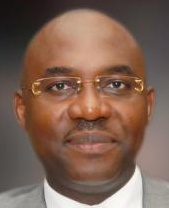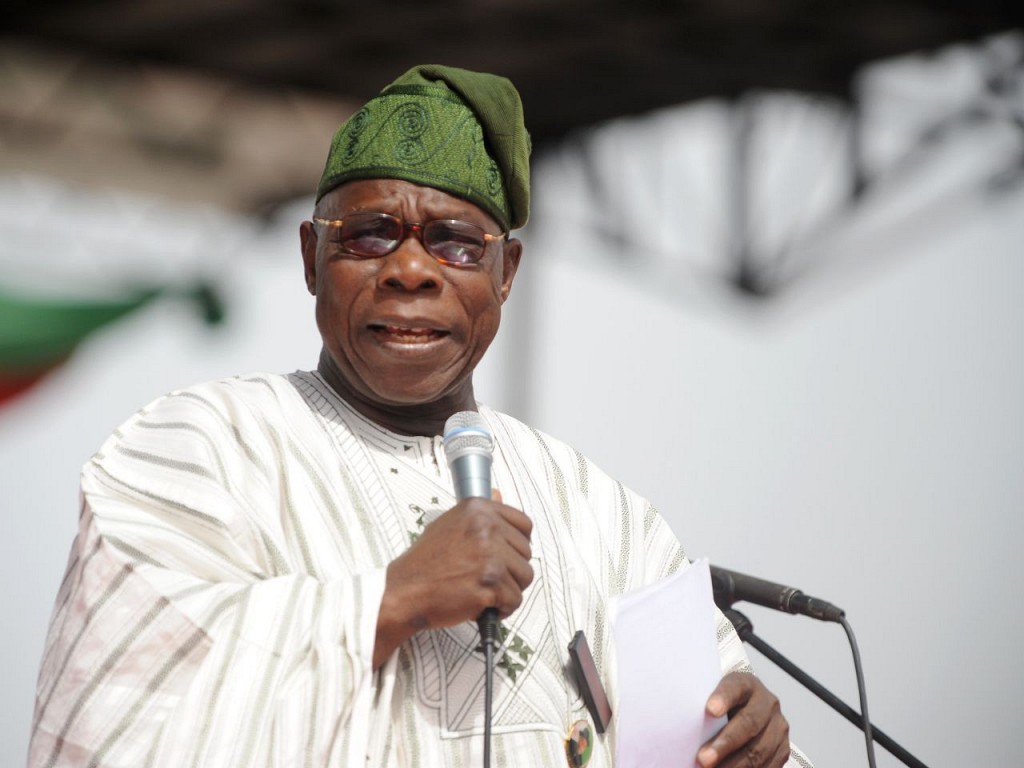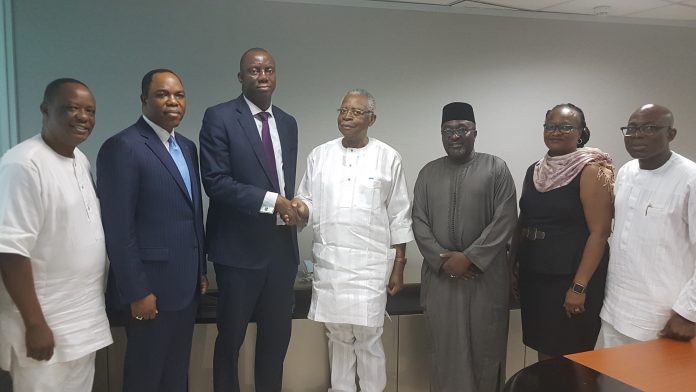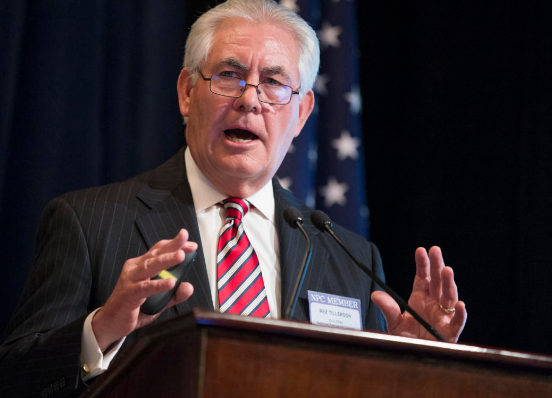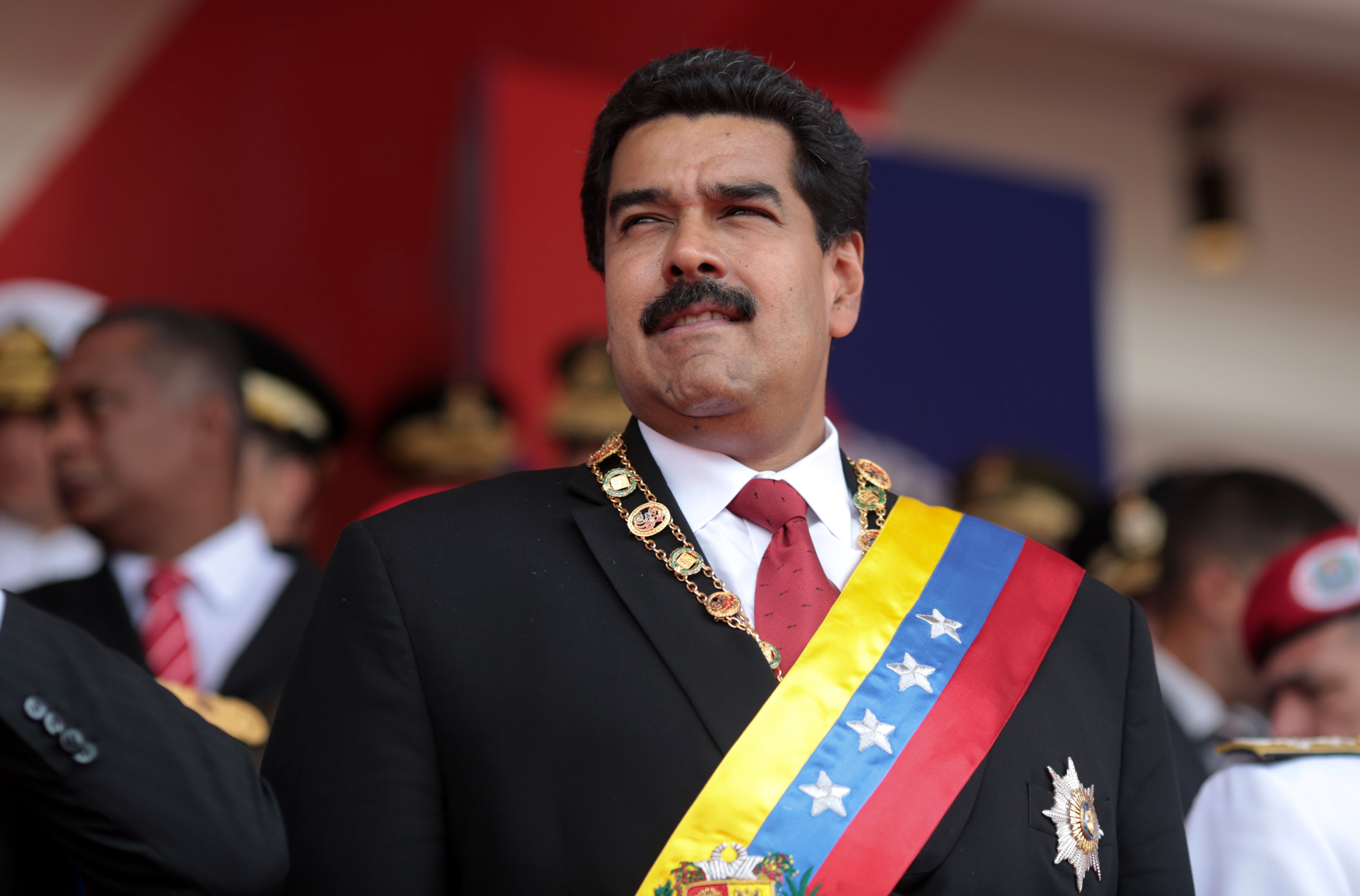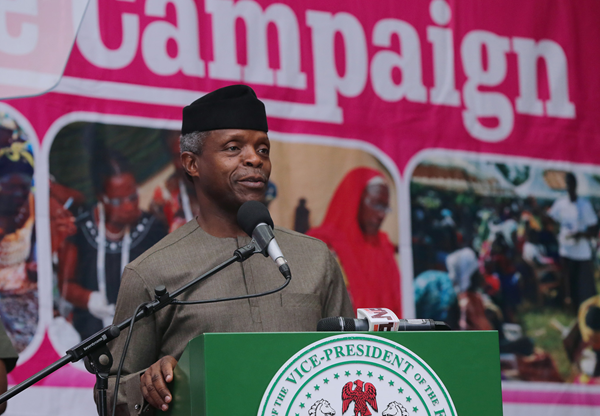A humour bag of arguably inexhaustible depth, former President, Chief Olusegun Obasanjo, would make even the most consummate stand-up comic feel inadequate on a good day. From improvising the risqué to trafficking the folksy, his creativity, as he himself once famously put it in one such fit of self-deprecating humour, is fed by a certain native resourcefulness, being “Omo ma lo le gbesi” (scion of he who is prodigiously adroit at tackling single-handed any public loud-mouth without help from home). “Wait and get”, for short.
The reason it is therefore rather surprising, if not troubling, that the witty general has kept a studied silence to the avalanche of weighty revelations by Ayo Fayose, the feisty Ekiti governor, in the current edition of wave-making The Interview. Since release last Thursday, Fayose’s wide-ranging expose on his one-time political godfather has been widely reproduced by all leading national dailies with massive rebroadcast in the social media.
At this writing, five uneasy days had passed without as much as a whimper from Ota. More and more, the ensuing silence conveys an eloquence not even a thousand words can possibly describe.
Whatever happened to the fabled facility of “Wait and get”?
Advertisement
Hell hath no fury than a woman scorned, Shakespeare tells us. Now, with Fayose, we now know no venom is as lethal as an estranged godson on rampage. For all his unalloyed loyalty and submission to be used for dirty jobs, he regrets Obasanjo eventually betrayed him by orchestrating his kangaroo impeachment in October 2006. Of course as a former OBJ enforcer, the “Oshoko” of Ekiti was an insider. What seems to complicate matters is that he did not just squeal; he named living witnesses in the series of infamies OBJ perpetrated as Nigeria’s civilian emperor, particularly between 2004 and 2006.
The revelations surely stink. The image of Obasanjo revealed is pathetic indeed. They include how public funds were used to bribe lawmakers to support Third Term Agenda which OBJ has in the last decade fought tooth and nail to deny. Going down memory lane, for instance, Fayose recalled that the day the bill was shot down at the National Assembly, OBJ dozed off in bitterness as they rode together from Akure airport to Ado Ekiti. Midway, he recalled, OBJ jerked up from slumber, muttering, “Ah, (Ken) Nnamani (then Senate president) willl not leave in one piece”.
We are also told how Umar Yar’Adua initially refused to accept being drafted as PDP’s presidential candidate on the ground that his health was too fragile to withstand the rigour of presidential office. But OBJ, according to Fayose, insisted on foisting him on the nation in the cold calculation that infirmity would pre-dispose the Katsina political prince to being manipulated while the Ota farmer continued as Nigeria’s de facto monarch.
Advertisement
Again, at this writing, none of the political actors Fayose “implicated” in the plot that drafted Yar’Adua including Senate President Bukola Saraki and Senator Goje has denied.
Perhaps the most jaw-dropping of all Fayose’s revelations is the claim that OBJ physically knelt down before Libyan strongman, Moummar Ghaddafi (presumably in January 2006) with a view to enlisting his support for the extension of his chairmanship of African Union.
Again, to be sure, Fayose named then Attorney General (Bayo Ojo, SAN) as part of the secret mission to Tripoli.
His recall of the comportment of a kneeling and “desperate” OBJ before Ghadaffi after being frisked thoroughly at four gates in a most un-dignifying manner should fill any self-respecting Nigerian with shame: “It was such a pathetic scenario, so shameful. Obasanjo was speaking rapidly like a parrot… I never knew Obasanjo (could) be that humble. He was on one knee till the end of the conversation.”
Put together, the picture Fayose painted is inconsistent with OBJ’s holier-than-thou posturing over the years, this affectation of statesmanship and sagacity.
Advertisement
Good enough, according to reports, the general is already pre-scheduled to, this Sunday (August 6), mount the podium at Archbishop Vining Memorial Church Cathedral, Ikeja, Lagos to deliver a lecture entitled “God in my life”.
Without taking anything away from the message he might wish to communicate, it would certainly be therapeutic for an apprehensive nation if OBJ first came clean that day on what really transpired in Libya. In case he confirms visiting Ghadaffi, then the other critical question: did he actually bow before the Libyan idol?
To begin with, from the cultural perspective, I can almost bet many would be heart-broken in Yoruba land at the suggestion at all that OBJ, whose estimated birthday is March 5, 1938, would openly kneel before younger Ghaddafi born in 1942. Again, Libya is a tiny country with a population of less than 7 million compared to Nigeria’s 180m!
So, this is one grave allegation OBJ cannot just wish away.
Advertisement
Otherwise, the nation will collapse under the shame. Russia’s literary immortal, Alexander Solzhenitsyn, once attempted to speak to that sinking condition. One of the telltales signs exhibited by a declining society, according the late Nobel laureate, is the scarcity of true statesmen. Philosopher Khalil Gibran put it more starkly with this lamentation: pity the nation whose heroes or statesmen are either impostors or conmen.
Ochinawata @ 60: The untold stories
Advertisement
It was a big surprise the poor widow least anticipated. Since the sudden passing of her loving husband, the celebrated journalist/columnist, there was one reality Madam Pini Jason had no doubt come to accept: the elasticity of man’s care and the fickleness of solidarity when the chips are down. As she must have observed from the diminishing number of her late husband’s friends still standing by the family as time began to roll by.
Her highly respected journalist husband died in 2013 of complications arising from a surgery. But not a few associates would attest that, even before then, he never really fully recovered from the shock from a bitter experience in 2011.
Advertisement
So, Madam Jason’s emotions could then be imagined last year at the third memorial of her husband having his former boss, Chief Ikedi Ohakim, among the few of her late husband’s closest associates that showed up at the family compound in Mbaise, Imo State.
At the end of the modest ceremony, the immediate past Imo governor came over and slipped something into her hand: key to a brand new car!
For the widow, the significance of the car gift could not have been lost. It obviously counted more not because of the promise of comfort to her family, but the comforting feeling that someone still remembered the dependants Pini left behind. Surely, greater is he who kept our back when we are no longer in a position to repay than he who abides showily in our presence.
Advertisement
By that gesture, Ohakim only acted true to his character: fierce loyalty to friendship. I knew him long before he became governor in 2007. His attitude towards me never changed throughout his four years at Douglas House. We grew even closer after he left office in 2011.
Four other qualities, in my view, define the quintessential Ohakim: community spirit, love of ideas, courage of conviction and grace under duress. He was barely 25 years old when he helped a cluster of communities in his native Mbano in Okigwe broker lasting peace after decades of bitter conflict. For that, the clan elders came together and decorated him as the “Ochinawata” (the boy king).
Politically, his defining moment would be PDP governorship primaries of January 2007 when moneybags took over the arena.
Unwilling – well, maybe unable – to match others cash for cash, Ohakim sensationally announced his withdrawal from the race and then resignation from PDP in protest. He decamped to PPA. As a parting shot, he left a scalding statement: by selling the party ticket to the highest bidder, party leaders were setting Imo PDP on the irreversible path to perdiction.
That turned out quite prophetic barely three months afterward. Before the election, the moneybags had only succeeded in cancelling each other out in an orgy of legal warfare, eventuating in the national leadership controversially announcing withdrawal from the governorship polls in Imo altogether.
So, Ohakim became the “consensus candidate”. The stone the builders had rejected became the cornerstone. With his instinctive taste for politics of ideas, little wonder that Ohakim was soon able to assembly a team dominated by professionals to drive his vision for Imo among whom were Pini Jason and Dr. Ethebelt Okere saddled with the task of framing and driving his public communication.
Like every mortal, Ohakim no doubt made his own mistakes and stacked up powerful enemies along the way. But one thing even his most implacable political foes cannot deny was his passion to make Imo better. It is perhaps a measure of his tenacity that Owerri was adjudged the “cleanest city in Nigeria” by the Federal Ministry of Environment within eighteen months that Ohakim’s bold “Clean & Green Initiative” was floated.
A city once defined by filth and foul smell transformed overnight.
The ultimate test of the strength of Ohakim’s character however came in the heat of the gritty battle for Imo’s political soul in April 2011. As the collation of results of the April 26 polls peaked, a tie began to crystalize. But that of critical Ohaji-Egbema was still being expected.
Ohakim’s Situation Room remained confident, buoyed by the figures already telegraphed by their field agents there. Suddenly, the magic began. The returning officer bearing the tally indicating wide-margin victory for Ohakim was waylaid few streets to the collation center by some gunmen and whisked to a popular hotel in Onitsha, Anambra State.
Sensing a plot to deny them victory, the hardliners in Ohakim’s camp pushed for war, unwilling to go down without a fight, counting on the power of incumbency and “federal might” as a PDP state. But, faced with possible loss of his crown, “Ochinawata” never lost his character. He considered it beneath him to sanction his supporters to go out on streets and engage Okorocha’s “forces” (euphemism for the battalions of rough necks) imported into Imo. He could not understand the desperation for power if the real intention was service.
Eventually, he lost the polls, but not his values.
“Ochinawata” turns 60 Friday, August 4. Happy birthday in advance to my big brother, my friend.
Add a comment
